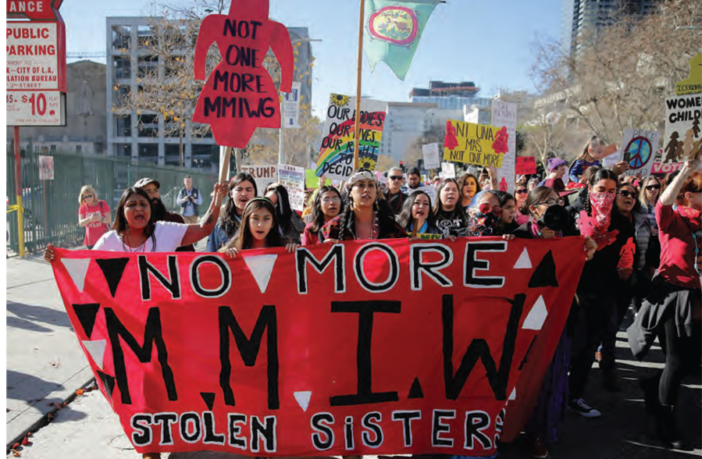By Natalie Rodgers
A new law has been passed, setting a precedent for bringing a sense of safety and closure to Indigenous Tribes. In a unanimous vote by lawmakers, California has passed a new bill that allows three Tribal nations to investigate Missing and Murdered Indigenous Peoples (MMIP) within their communities.
American Indian and Alaskan Native people, especially women, have statistically experienced some of the highest rates of violence, abduction and murder in the U.S. Historically, these cases have been overlooked, leading to a lack of resolve and justice. In 2016, the National Institute of Justice reported that over 83% of women had experienced some form of assault during their lifetime, with over half of these women citing sexual violence as the cause. Even worse, in a report done by the CDC in 2020, the organization found that Native Americans experienced the second-highest rate of homicide in the U.S., with homicide being the third most common reason for death in women.
For California specifically, solving these cases became next to impossible when Public Law 280 was passed in 1953. Under this ordinance, six states, including California, were to transfer public safety responsibility from the federal government to their state governments without cost reimbursement. This change failed to decrease crime rates, overworked and underfunded law enforcement personnel, created insensitive protocols and services on Tribal lands and took away from Tribal sovereignty.
While legislation has been passed in recent years to combat these issues, including a newer law that opened up an MMIP database, the California law will allow many of these Tribes to look further into these cases in the hope of bringing a form of closure to their communities. Working within three Tribal communities: the Yurok Tribe, Blue Lake Rancheria and the Coyote Valley Band of Pomo Indians, Tribal police officers in California will be granted the status of peace officers under certain circumstances, allowing them the authority to solve MMIP cases within their nations.
“California ranks fifth in the nation for uninvestigated, unresolved MMIP cases,” Assemblymember James Ramos, who introduced the legislation, said in a statement. “One contributing factor to this epidemic is the confusion over law enforcement jurisdiction caused by a 1953 federal law. We can reduce the number of unsolved cases by clarifying jurisdiction and permitting Tribal police to pursue alleged perpetrators with the same authority as state peace officers if they meet California requirements.”
Yurok Tribal Chairman Joe James, representing one of the Tribes that will be affected by the new law, showed his hope for change by saying:
“It is our firm belief that this bill and pilot program will combat the crisis of MMIP by improving public safety in Tribal communities. Thank you to Assemblymember Ramos for his leadership on this important issue, and we look forward to the collaborative efforts with Tribal communities to ensure our safety and well-being.”
California is the only one of the six states that have created this legislation. However, as the law is enacted, the public hopes other states will implement similar protocols.
Explore more articles for the Native Origins Community here.



